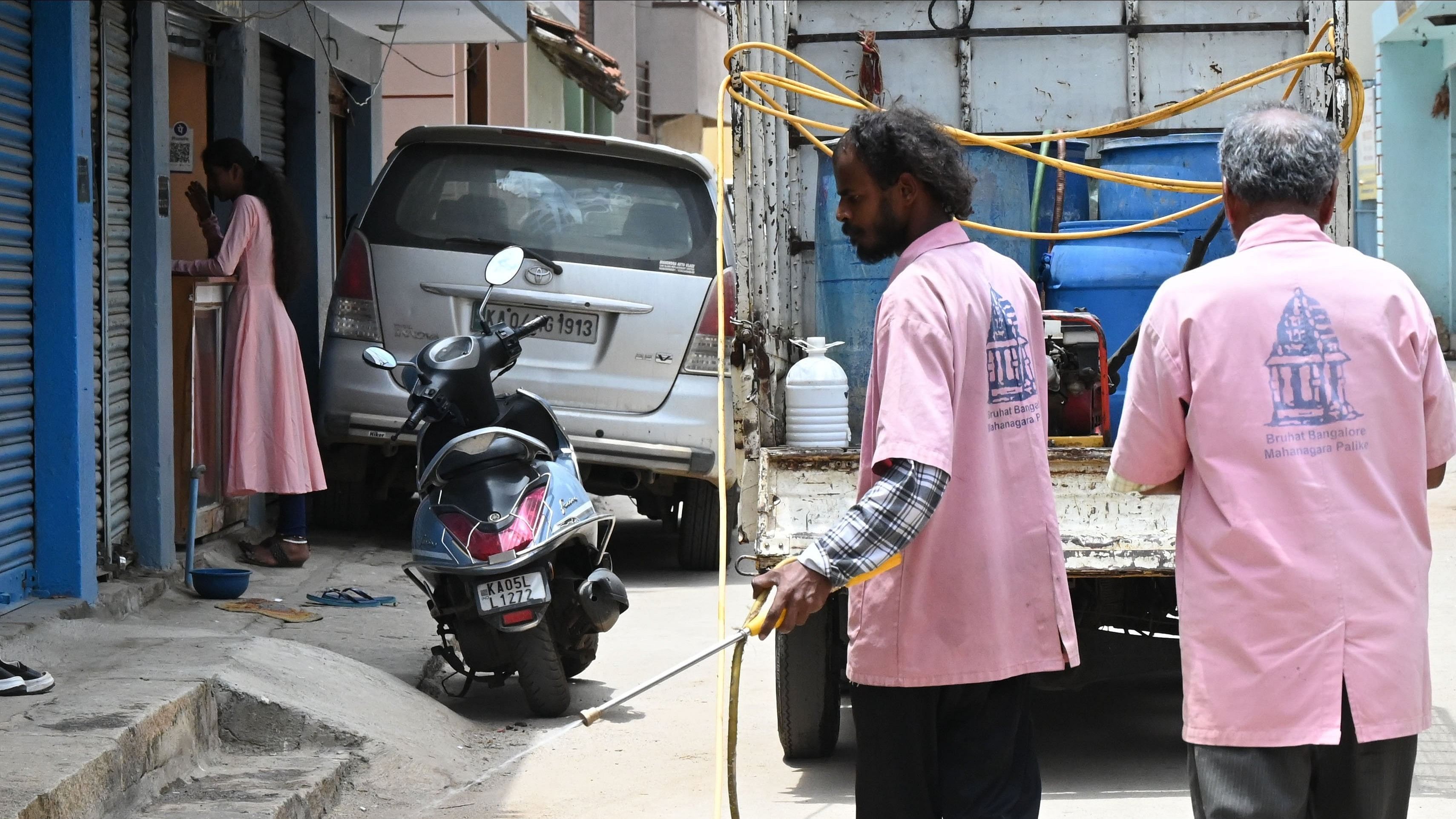
BBMP health department workers fumigate areas in Bengaluru to control the spread of dengue.
Credit: DH Photo B K Janardhan
Bengaluru: Karnataka has notified dengue as an epidemic disease, outlining public and government agency responsibilities, besides empowering officials to inspect areas and penalise defaulters.
In a recent gazetted notification, the government notified dengue, including severe forms of dengue, and amended the Karnataka Epidemic Diseases Regulations, 2020.
The new regulations, titled the Karnataka Epidemic Diseases (Amendment) Regulations, 2024, came into force from August 31.
The regulations outline the responsibilities of owners, builders, managers, institutions and any occupiers of any land, building, household or public space such as a park, water tank, or a playground, to enforce measures that can prevent mosquito breeding.
These measures include covering water storage containers and tanks, properly disposing solid waste to prevent water accumulation, and not allowing any unused tanks, pits or burrows or even buildings under construction to collect any water.
These directions are applicable to people owning or in charge of private, government and semi-government land and establishments as well.
Under this amendment, the competent authority, which is the Chief Commissioner of the Bruhat Bengaluru Mahanagara Palike (BBMP) in Bengaluru and the Deputy Commissioner of each district outside the BBMP jurisdiction, has the power to ensure these measures are properly implemented within their jurisdiction to prevent the spread of the vector-borne disease. This includes providing due notices in writing to owners and occupiers of any property to inspect said property any time during the day.
"The competent authority shall have the power to inspect periodically all the lands, buildings, building premises, water tanks, parks, playgrounds, etc., and to recommend and take measures as are necessary to prevent the breeding of mosquitoes," read the notification.
Upon inspection and finding any collection of water which might aid mosquito breeding, the authority can submit a notice to those concerned to prevent such an activity and destroy the breeding site. Failure to do so will attract a penalty up to Rs 2,000.
Additionally, 50 per cent of the penalty specified will be levied for each week of continued non-compliance by the owner or person in charge of the property after the authority has served a notice.
As of September 2, the state reported a total of 25,408 dengue cases with 12 deaths.